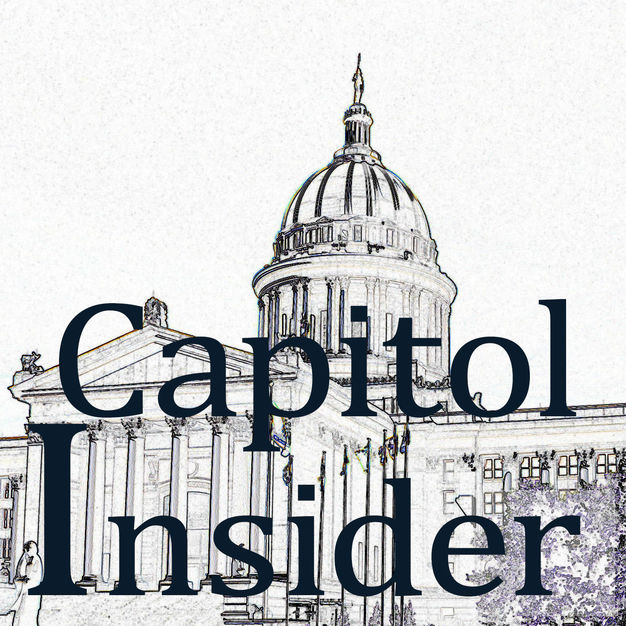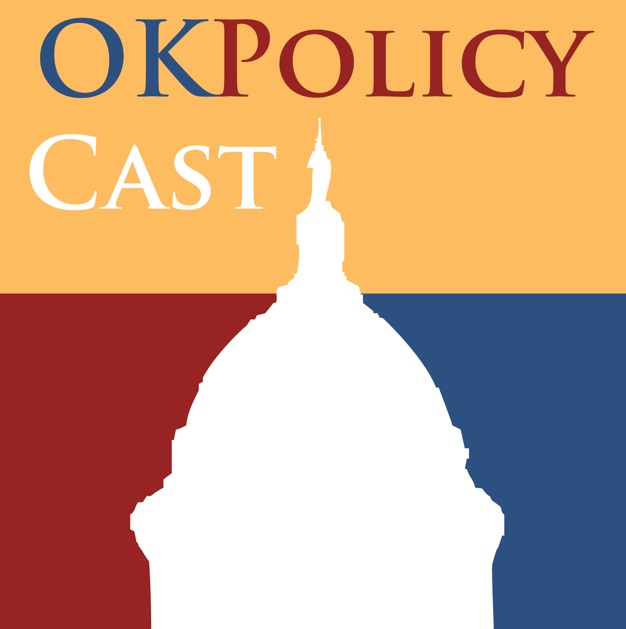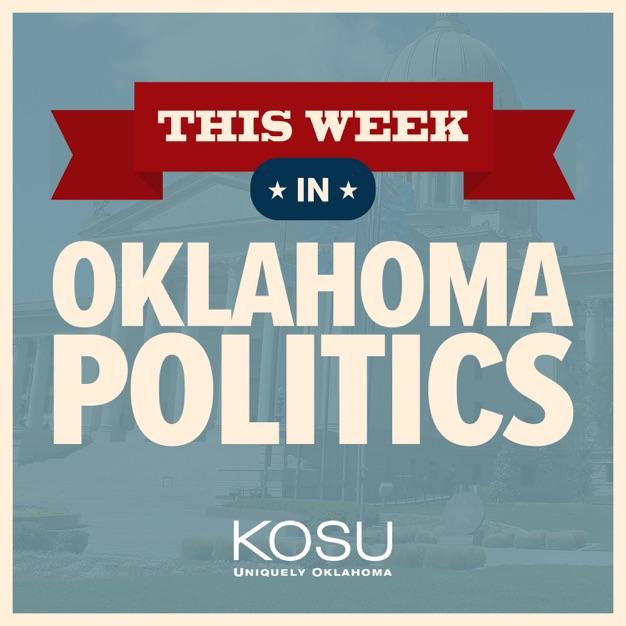
Let's Pod This
Let's Fix This
Let's Pod This is the official podcast of grassroots organization Let's Fix This, Inc., where we talk with policymakers, advocates, elected officials, and regular folks from across Oklahoma to explain how our government works and provide context for the pressing issues facing our state.
- 41 minutes 2 secondsWhat comes next?
Andy discusses results from the November 2024 election and what comes next...but mostly how he's feeling right now.
8 November 2024, 10:59 pm - 30 minutes 13 secondsPre-Election Reminders
A few reminders about elections, outcomes, and self-care before the election. Oh, and here's this in case you need it:
Election Protection Hotline: 1-866-687-8683 or 866OurVote.org
1 November 2024, 10:38 pm - 1 hour 5 minutesDemocracy is on the ballot (with Keith Gaddie)
Scott's back, and so is Dr. Keith Gaddie, and together we discuss the presidential race, democracy, and everything in between.
25 October 2024, 10:57 pm - 1 hour 7 minutesWhat's on the ballot in 2024
With 3 weeks until election day, the team discusses the state of the presidential race, the role of prediction markets, and what Oklahomans will find on their ballots this year.
- League of Women Voters' 2024 Voter Guide
- Let's Fix This' Voter Hub
- FiveThirtyEight's election dashboard
- Nate Silver's substack, Silver Bulletin, and podcast, Risky Business
- Freakonomics Radio episode "How to Predict the Presidency"
15 October 2024, 7:59 pm - 28 minutes 9 secondsThe Voter Purge
Yesterday, Governor Stitt and state election officials released a statement about election security and the state's efforts to maintain accurate voter rolls. While accurate, the way the Governor presented the data has caused concern, so we want to clear up a few things.
Oklahoma did not purge 453K voters this week.
The way this has been presented made some people believe this was a recent purge, however, the truth is that 453K is the total number of voters who were removed from 2021 to present. Voter list maintenance is done monthly, and voters may be removed from voter rolls for many reasons - often because they've moved out of state, died, or became ineligible for some reason. Some voters are removed because they have not voted in many years (more on that below).
Voter list maintenance is good and normal.
Every state is required to maintain a clean & accurate voter list, and it's an enormous task. Oklahoma currently has nearly 2.4 million registered voters, but that number changes every single day. Voters are constantly moving within the state and between states, voters die, change their name, and change their party affiliation. Some voters become ineligble due to felony convictions and others regain their eligibility once they complete their sentences. And some voters become inactive because they do not participate for a long period of time. It's a constantly changing list, and keeping it as current as possible is good for everyone.
When does list maintenance occur?
The Oklahoma State Election Board does list maintenance on an ongoing basis and publishes monthly reports with details about how many voters were added, removed, and updated. You can view the August report here.
What about "inactive" voters?
State and federal laws require the State Election Board to contact voters who have not voted in a while. In Oklahoma, a voter is considered "inactive" if they have not voted in four general election cycles - in other words, if they have not voted in any election for 8 consecutive years. Here's how it works:
- In the year after a general election, the state will send the address confirmation to voters who haven’t cast a ballot in either of the last two general elections or any state or local elections in that 4-year time period.
- If the voter doesn’t respond within 60 days of receiving the letter, they are put on “inactive status” but are still registered and are still able to vote. The voter can regain their active status at any time by voting in any election or updating their voter registration information.
- If the voter, while on inactive status, doesn’t participate in an election for two more general election cycles (4 additional years), their voter registration will then be removed and they will need to re-register if they want to vote again.
This means that any inactive voter who is being purged this year hasn't voted in any election since 2018 and didn't respond to the notification mailer from the State Election Board.
Do other states also remove voters in a similar manner?
Yes, although the process varies from state to state. All states strive to maintain accurate voter lists.
Do we need to remove inactive voters?
Some argue that no voter should ever be removed, even if they're inactive, because it's an infringement on voting rights. Others argue that we should purge voters even more quickly than we do already. Our position is that list maintenance is important provided that the state makes attempts to engage with inactive voters. Oklahoma's current system meets these requirements.
We also believe that if the state is going to take action to remove voters then it should take greater action to register new ones, such as by enacting automatic voter registration when someone turns 18, becomes a US citizen, and anytime a eligible person interacts with any state agency.
Why isn't there a nationwide voter database?
There is...kind of. In 2012, a bipartisan, nonprofit organization called the Electronic Registration Information Center, or ERIC, was created to be a clearinghouse for voter data between states. Unfortunately, due to rumors and conspiracy theories, a number of states have pulled out of ERIC and did so without a good alternative. This NPR article from October 2023 provides a great overview.
How do I know if I'm still registered?
You can easily check your voter registration status by using the Oklahoma Voter Portal or the Let's Fix This Voter Hub.
Anything else I should know?
We encourage everyone to read the Governor's full statement, as it really does highlight the sound management of Oklahoma's election system from beginning to end, including the security of our voting machines, paper ballots, and election audit process. There is a lot of misinformation about elections floating around this year - you can play a role in correcting the misinformation and being a resource for your friends and family.
Do I wish the Governor had phrased things differently? Yes, of course. But perhaps there is a silver lining - if people think they're being purged, maybe it will prompt them to update their voter registration and to vote!
20 September 2024, 8:02 pm - 48 minutes 38 secondsPolicy, Personality, or Just Vibes? (with Ava Woodall and Preston Salameh)
We visit with our fall policy fellows, Ava Woodall and Preston Salameh, for their Gen Z perspectives on the 2024 election and what they're looking for during the presidential debate.
10 September 2024, 11:54 pm - 53 minutes 17 secondsCome at me, bro
Republicans want to investigate State Superintendent Ryan Walters and it seems he wants them to investigate him, too, which is weird. But...why?
Here is the NonDoc article referenced gratuitously throughout the episode. There's more in the article; you should read it.
16 August 2024, 10:18 pm - 41 minutes 36 secondsRyan Walters and the Case of the Missing Money
Another week, another news story about something going wrong at the OK State Department of Education.
9 August 2024, 7:44 pm - 56 minutes 12 secondsAs The World Turns
It feels like everything in the world has changed, so let's recap: an assassination attempt on Trump, Biden dropped out, Harris tagged in, Ryan Walters flaunts the law, and, well, Andy's father died.
2 August 2024, 8:22 pm - 52 minutes 16 secondsPrimary election prognosis
Tuesday's primary elections brought several legislative upsets that are causing some voters to scratch their heads while others celebrate. Let's talk about what that means for Oklahoma moving forward.
21 June 2024, 9:26 pm - 56 minutes 7 secondsThe Politics of Political Reporting (with Ted Streuli)
Have you ever read a news story and wondered why the author framed it in a certain way, why they asked certain questions but not others, or how they deal with wild feedback? In this episode we speak with Ted Streuli, Executive Director of the nonpartisan, nonprofit, investigative newsroom, Oklahoma Watch, to give us an inside look at the politics of political reporting.
7 June 2024, 6:00 am - More Episodes? Get the App
Your feedback is valuable to us. Should you encounter any bugs, glitches, lack of functionality or other problems, please email us on [email protected] or join Moon.FM Telegram Group where you can talk directly to the dev team who are happy to answer any queries.
 23rd & Lincoln
23rd & Lincoln
 Political State Podcast
Political State Podcast
 Capitol Insider from KGOU
Capitol Insider from KGOU
 How We Got Here
How We Got Here
 OK PolicyCast
OK PolicyCast
 This Week in Oklahoma Politics
This Week in Oklahoma Politics